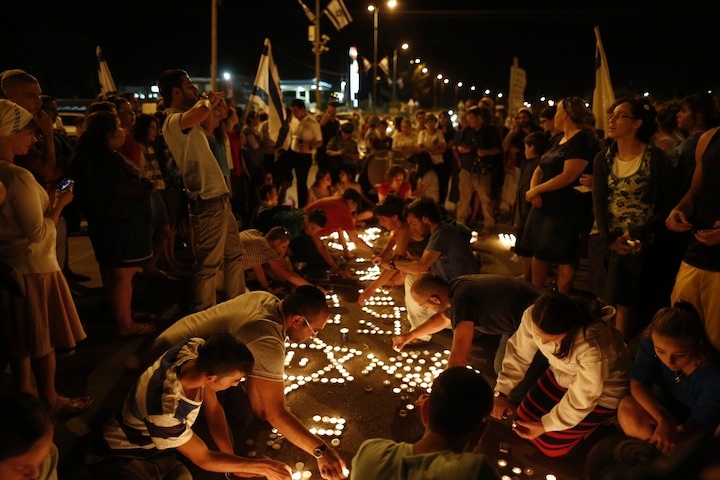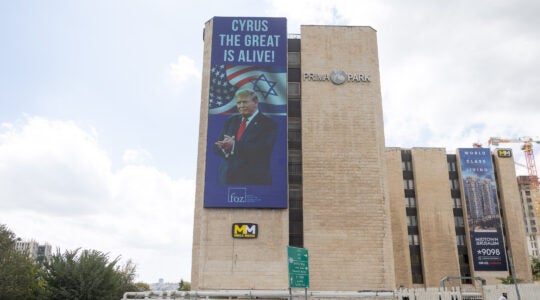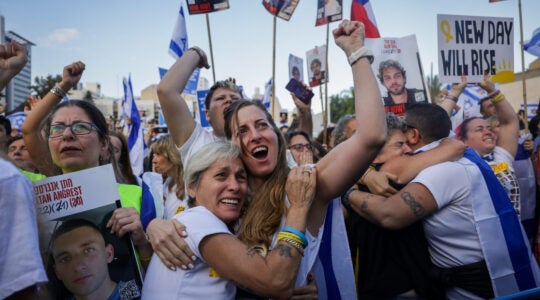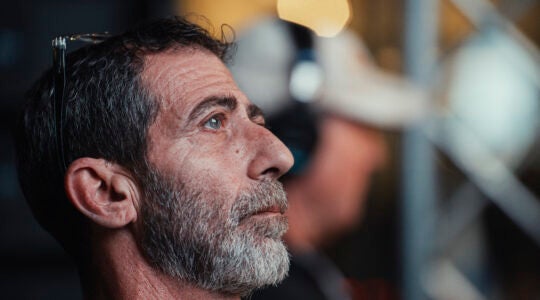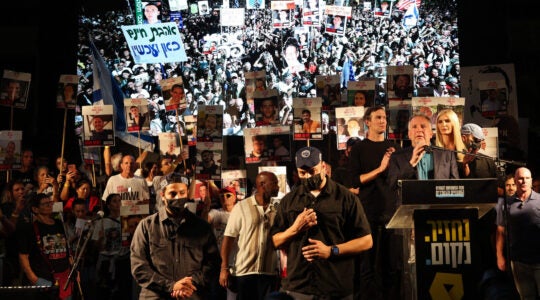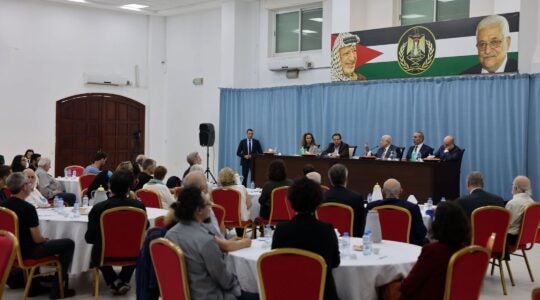TEL AVIV (JTA) — A national ordeal here ended in tragedy as three Israeli teenagers kidnapped earlier this month were found dead near Hebron.
The discovery of their bodies Monday night by the Israeli army and volunteer searchers brings to an unhappy conclusion the intensive effort to find the missing teens.
Eyal Yifrah, 19; Gilad Shaar, 16; and Naftali Fraenkel, 16, were kidnapped June 12 while hitchhiking near the West Bank settlement of Kfar Etzion. All three were studying in West Bank yeshivas.
Their bodies were found partially exposed in an area called Wadi Tellem north of the Palestinian village of Halhul. Israeli reports said the boys seem to have been killed soon after they were kidnapped.
“They were abducted and murdered in cold blood by human animals,” Prime Minister Benjamin Netanyahu said at an emergency meeting of the Israeli security Cabinet Monday night. “On behalf of the entire Jewish people, I would like to tell the dear families — the mothers, fathers, grandmothers and grandfathers, and brothers and sisters — we are deeply saddened, the entire nation weeps with you.”
He said, “Hamas is responsible — and Hamas will pay.”
Israel had previously named Amer Abu Aysha and Marwan Kawasme, two Hamas members, as prime suspects in the abduction. The two have been missing since the kidnapping and are still at large. Hamas has not taken responsibility for the kidnapping.
Israel has sealed off the area where the bodies were found, as well as the city of Hebron.
Leaders from across the Israeli political spectrum, as well as Diaspora Jewish leaders, expressed grief at the news that the bodies were found.
Some also called for strong measures against Hamas.
“In their memories, we must ensure that this tragic end be turned into an opportunity to create a better and safer Israel,” Israel’s deputy defense minister, Danny Danon, said in a statement. “Israelis have the willingness and the fortitude necessary to endure the hardships of a long-lasting operation aimed at eradicating Hamas. We will not stop until Hamas is completely defeated.”
After the discovery of the teens’ bodies, Hamas warned Israel against stepping up its military offensive against it.
“If the occupiers carry out an escalation or a war, they will open the gates of hell on themselves,” Hamas spokesman Sami Abu Zuhri told the French news agency AFP.
Following the kidnapping, the Israeli army spread out across the Hebron area conducting an intensive search for the teens. Six Palestinians were killed over the course of the operation. Hebron’s Palestinian population was placed under curfew, and Palestinians with Israeli work permits were not allowed into Israel for a week after the abduction.
Meanwhile, dozens of rockets have been fired from Gaza at Israel amid the search.
Palestinian Authority President Mahmoud Abbas had publicly condemned the kidnapping, and P.A. security forces aided the Israeli army in the search for the teens.
The kidnapping has dominated Israeli news. Israelis gathered in prayer vigils across the country, and the boys’ mothers became symbols of resilience. On Sunday, a day before the teens were found, more than 10,000 people gathered in Tel Aviv for a concert to call for the boys’ return.
As news of the murders emerged, hundreds slowly gathered in Tel Aviv again, in Rabin Square, to light candles in memory of the teens and sing songs.
But the kidnapping also brought up a range of national debates — about the nature of the military operation, Israel’s approach to the Palestinians and, most of all, the wisdom of exchanging Palestinian prisoners for kidnapped Israelis. Israel’s last kidnapping incident — when Hamas took soldier Gilad Shalit captive in 2006 — ended with Israel swapping 1,000 Palestinian prisoners in exchange for Shalit.
More than 50 of those prisoners were rearrested in the Israeli military operation to find the boys as well as weaken Hamas’ presence in the West Bank. Hundreds of Hamas operatives were arrested during the operation.
In the weeks since the kidnapping, Fraenkel’s mother, Rachel, a U.S. citizen, advocated fiercely for his release in international forums, pleading to the U.N. Human Rights Council last week for the organization to do more to secure his release.
“It is wrong to take children — innocent boys and girls — and use them as instruments in any struggle,” she said. “Every mother’s nightmare is waiting and waiting for her son to come home.”
JTA has documented Jewish history in real-time for over a century. Keep our journalism strong by joining us in supporting independent, award-winning reporting.
